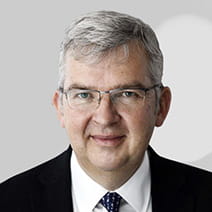- Global equities higher, led by Japan and the US
- High yield contributes positively but fixed income still weighs
- Liontrust Multi-Asset funds and portfolios deliver mixed performances
The Liontrust Multi-Asset funds and portfolios marked time in January as global financial markets paused for breath after the strong returns seen in the closing months of 2023. Global equities drifted up, except in the UK, emerging markets and Asia ex-Japan. Our funds with greater exposure to developed market equities delivered the strongest positive performances. Over the 12 months to end-January, all our funds and portfolios delivered positive returns, and most of our funds outperformed their benchmarks, including all the Explorer range.
US and Japanese equities contributed the most significantly in our portfolios in January, with notable performers including Fidelity Index US and Fidelity Index Japan.
The S&P 500 broke a nine-week bull run early in the month, although it later recovered and reached record highs, with strong gains for technology stocks. Equities and especially bonds sold off mid-month as hawkish signals from central banks forced investors to accept that the interest rate cuts they had expected as early as March would not materialise. There were surprise slight upticks in inflation in December, but it had still fallen significantly over 2023 to 3.4% in the US, 2.9% in the eurozone and 3.9% in the UK, down from 6.5%, 9.2% and 10.5% respectively in December 2022.1
Japan outperforms
Japan delivered the strongest gains among leading stock markets in local currency and sterling terms, reflecting growing investor confidence in the country’s equities. We had increased our rating for Japanese equities in December, including large and small caps, from a neutral three to an overweight four. The country continues to offer a combination of fair valuations with a positive outlook for economic growth, normalising inflation and interest rated for the first time in decades and genuine structural reform.
In January we initiated a manager change to the US allocation in our MPS Growth portfolios in a move that we believe enhanced the focus on valuation within our US sleeve and increased the underlying conviction of stocks. We remain neutral on the US, where our manager selection provided some exposure to the artificial intelligence (AI) theme that has dominated in 2023 through growth fund managers and index funds. However, we remain careful because the AI-driven rally has been particularly narrow in nature, bringing a small cohort of stocks to valuation levels that are, we believe, unsustainable. A more diversified allocation to the US will benefit less from the AI theme when the going is good, but we also expect it to be less sensitive to the inevitable challenges that this theme will face from time to time.
The changes we initiated involved the introduction of Loomis Sayles US Growth, replacing the incumbent AB American Growth. Loomis Sayles US Growth has a consistent quality-growth style bias to investing, using bottom-up fundamental analysis to identify high-quality businesses trading at a significant discount to their intrinsic value. The investment team need to identify sustainable competitive advantages in the underlying companies for them to be added to the portfolio and often take what they see as a private equity approach to being a shareholder, looking to be a partner rather than trading in and out of stocks. The fund remains our preferred solution for exposure to quality growth in US equities.
The poorest equity performances in January were in emerging markets and Asia ex-Japan, which were impacted negatively by Chinese stocks capitulating on the collapse of property giant Evergrande. Our higher risk funds and portfolios have greater exposure to these regions. Poor contributors to funds in these regions included Fidelity Index Emerging Markets and Federated Hermes Asia ex-Japan Equity.
High yield positive but fixed income still weighs
Developed market high yield bonds contributed positively to our portfolios’ performance through Aegon High Yield Bond and Baring Global High Yield, but fixed income generally weighed on performance, especially in our lower-risk investment solutions, which have more exposure to the asset class. Bonds were negatively impacted by investors’ changed expectations for interest rates’ trajectory in 2024.
We remain broadly neutral on fixed income, although we are positive on the outlook for investment grade corporate bonds, where we believe there are opportunities because the spreads they offer over government bonds means there are high-quality companies trading at attractive nominal yields. However, following a review of our UK corporate bond managers, we initiated in January changes to the fund blend within our MPS Growth and Income portfolios.
Fidelity Sustainable MoneyBuilder Income has been replaced by Man GLG Sterling Corporate Bond in the UK corporate bond sleeve to complement the remaining Royal London Sterling Corporate Bond. The relatively higher conviction Man GLG Sterling Corporate Bond looks for smaller, under-researched issues to generate alpha through the cycle. The fund often has concentrated positions in contrarian unloved sectors and looks for smaller issues that have not been researched by peers.
The blend between Royal London Sterling Corporate Bond and Man GLG Sterling Corporate Bond brings together two managers with very different approaches to portfolio management and two differing return profiles. We have confidence that the blend should return an attractive risk-return profile through the cycle. The active managers are complemented with a new 60% allocation to a passive UK corporates tracker. The passive allocation has been introduced with the aim of controlling the overall fees of the sleeve, enabling us to allocate to a new high conviction active manager.
The value of staying invested
Financial markets may have underwhelmed in January, but global equities and bonds were still materially higher from a year ago, when we raised our outlook on markets generally from neutral to positive. As a result, our overall view on markets remains positive. This has been the case since we raised it from neutral in the first quarter of 2023 because we believed that markets reflected too negative a stance, which had led to excellent valuation opportunities both in the equity market but also within fixed income markets. Today, we remain of the view that the balance of risks is more positively biased and as a result we have a cautiously optimistic tactical view of the next 12-18 months.
The recoveries seen in markets over the last year have been a testament to the value of staying invested and keeping to a disciplined investment process. Having a team with experience through a variety of market cycles helps with making sensible long-term capital allocation decisions at times when it may not seem obvious.
We remain constructive on the prospects for investments from here. At least for now, central bankers are on course for a soft economic landing, which bodes well. There may well be more volatility before stronger momentum builds, but the high levels of distress seen in recent years in markets have fallen and over the medium to long term, those staying in cash will run the risk of missing out on the long-term benefits of staying invested.
1Source: FT.com, 17 January, 2024/Liontrust, January 2023
KEY RISKS
Past performance is not a guide to future performance. The value of an investment and the income generated from it can fall as well as rise and is not guaranteed. You may get back less than you originally invested.
The issue of units/shares in Liontrust Funds may be subject to an initial charge, which will have an impact on the realisable value of the investment, particularly in the short term. Investments should always be considered as long term.
The Funds and Model Portfolios managed by the Multi-Asset Team may be exposed to the following risks:
Credit Risk: There is a risk that an investment will fail to make required payments and this may reduce the income paid to the fund, or its capital value. The creditworthiness of a bond issuer may also affect that bond's value. Bonds that produce a higher level of income usually also carry greater risk as such bond issuers may have difficulty in paying their debts. The value of a bond would be significantly affected if the issuer either refused to pay or was unable to pay; Counterparty Risk: The insolvency of any institutions providing services such as safekeeping of assets or acting as counterparty to derivatives or other instruments, may expose the Fund to financial loss; Liquidity Risk: If underlying funds suspend or defer the payment of redemption proceeds, the Fund's ability to meet redemption requests may also be affected; Interest Rate Risk: Fluctuations in interest rates may affect the value of the Fund and your investment. Bonds are affected by changes in interest rates and their value and the income they generate can rise or fall as a result; Derivatives Risk: Some of the underlying funds may invest in derivatives, which can, in some circumstances, create wider fluctuations in their prices over time; Emerging Markets: The Fund may invest in less economically developed markets (emerging markets) which can involve greater risks than well developed economies; Currency Risk: The Fund invests in overseas markets and the value of the Fund may fall or rise as a result of changes in exchange rates. Index Tracking Risk: The performance of any passive funds used may not exactly track that of their Indices. Any performance shown in respect of the Model Portfolios are periodically restructured and/or rebalanced. Actual returns may vary from the model returns.
The risks detailed above are reflective of the full range of Funds managed by the Multi-Asset Team and not all of the risks listed are applicable to each individual Fund. For the risks associated with an individual Fund, please refer to its Key Investor Information Document (KIID)/PRIIP KID.
DISCLAIMER
This is a marketing communication. Before making an investment, you should read the relevant Prospectus and the Key Investor Information Document (KIID), which provide full product details including investment charges and risks. These documents can be obtained, free of charge, from www.liontrust.co.uk or direct from Liontrust. Always research your own investments. If you are not a professional investor please consult a regulated financial adviser regarding the suitability of such an investment for you and your personal circumstances.
This should not be construed as advice for investment in any product or security mentioned, an offer to buy or sell units/shares of Funds mentioned, or a solicitation to purchase securities in any company or investment product. Examples of stocks are provided for general information only to demonstrate our investment philosophy. The investment being promoted is for units in a fund, not directly in the underlying assets. It contains information and analysis that is believed to be accurate at the time of publication, but is subject to change without notice. Whilst care has been taken in compiling the content of this document, no representation or warranty, express or implied, is made by Liontrust as to its accuracy or completeness, including for external sources (which may have been used) which have not been verified.











